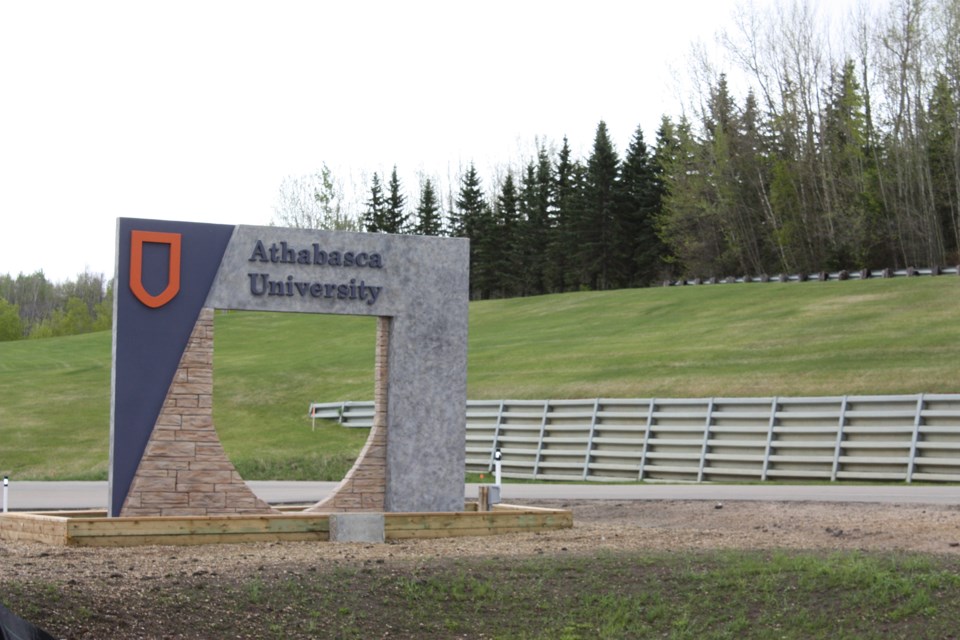ATHABASCA – Dr. Rory McGreal, the UNESCO/International Council for Open and Distance Education Chair in Open Educational Resources at Athabasca University, has added another accolade to AU’s full trophy case.
McGreal, who has his PhD in computer technologies in education, submitted an article titled ‘The benefits of an Open Educational Resource implementation in an Indigenous college, a Maskwacis Cultural College case study’ about the development of courses that localize content to integrate in courses for Indigenous use.
“I've won a few prizes in the past but this has been the one that most people have been interested in. I've been pleasantly surprised though. I've got emails from friends I haven't heard from in years,” said McGreal.
In 2013 the Alberta government started a three-year project with British Columbia and Saskatchewan for supporting the development of open educational resources, which are free learning resources on the internet. The Alberta Open Educational Resources (OER) initiative has since saved millions for Alberta post-secondary students alone McGreal said.
Involved in that project was Manisha Khetarpal, the Dean of Library and Information Services at Maskwacis Cultural College. Khetarpal wanted to use open education as a base to be able to offer Indigenous courses tailored to Maskwacis and other Indigenous colleges. That project became the thesis for McGreal’s submission to IITE/UNESCO.
"Last year the IITE (Institute for Information Technologies in Education) UNESCO asked me to submit a report on it. So, I did and, to my surprise, it won the prize,” he said.
Ultimately it means McGreal wins recognition from UNESCO as there is no money with the prize, but it is a prestigious award and highlights the advantages of OER and the cost savings of going to open source is staggering McGreal noted, with students at AU alone saving around $1 million over the past few years by not having to buy textbooks.
“Our biggest disappointment is that we could not get anyone in the school system to listen to us because at the K to 12 level, I believe we're talking about tens of millions of dollars savings every year,” said McGreal.
Beyond the cost savings it allows teachers to share resources and improve collaboration because being open source, anyone can use them. Even students can use them to build on and develop open source resources. And in the time of a pandemic, open source is gaining traction with educational institutions and students.
"With the COVID, Cinderella has become a princess. With online learning now people are realizing just how important it is and how powerful it is. In Athabasca we’ve been the world leaders in this and I don’t mean ‘a’ world leader, we’ve been ‘the’ world leaders,” he said.
McGreal said it is not just OER that AU is famous for, it is also the MOOCs, or massive open online courses, they develop and offer.
"The other work we're doing with the MOOCs of the Commonwealth of Learning are also renowned around the world. This is part of the problem is we're not known in Alberta; internationally we have a reputation.”
Heather Stocking, TownandCountryToday.com
Follow me on Twitter @HLSox



